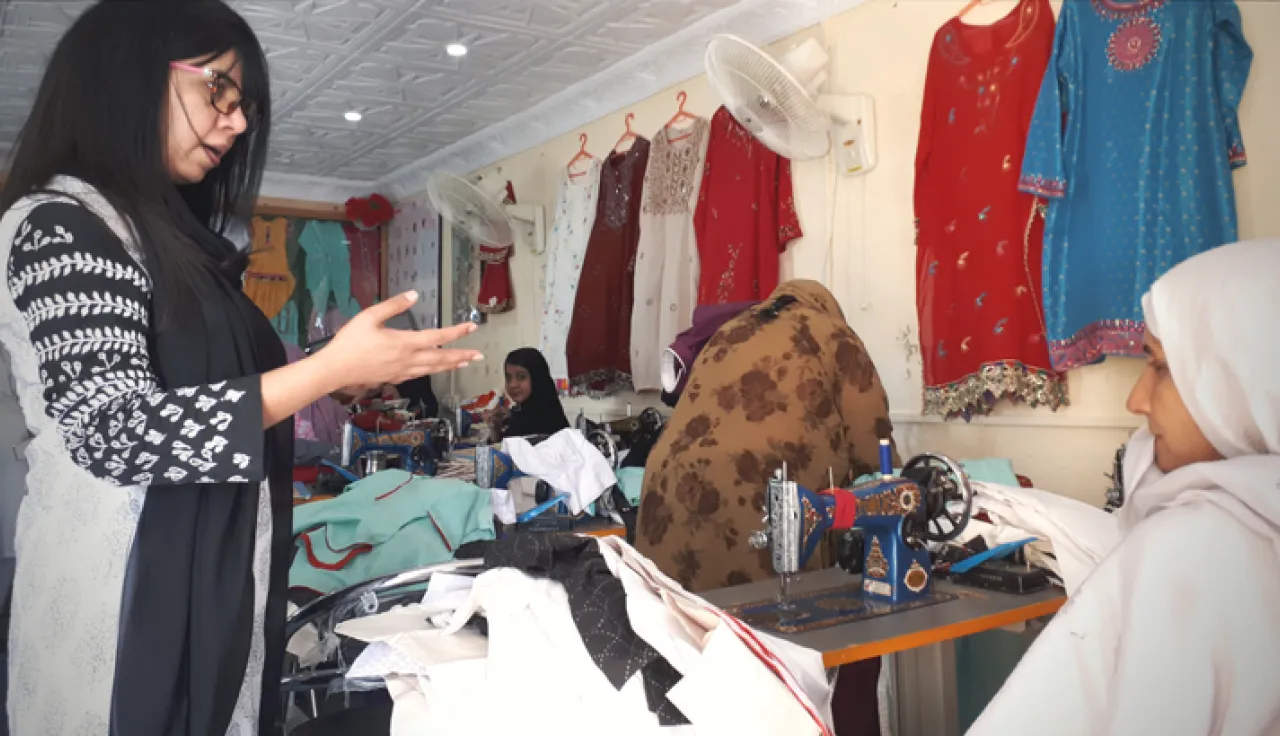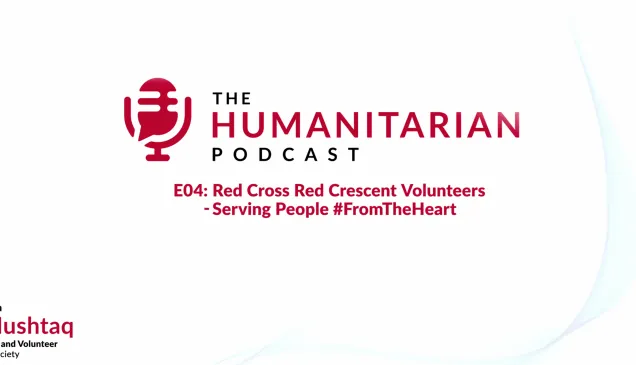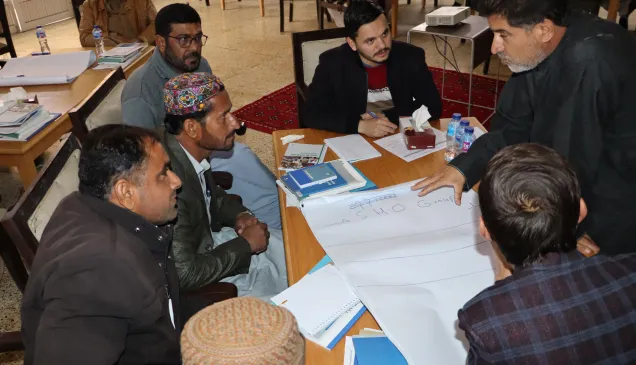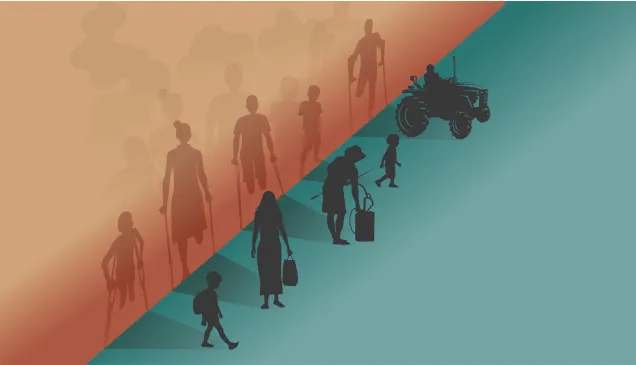Supporting social inclusion programme in Mardan for women with disabilities

Karishma clearly remembers the first day of training at Roshni Rehabilitation and Welfare Organization: she was sitting behind a sewing machine with 15 other women, some with children with disabilities and some with disabilities of their own. However, all of them had an eager spark in their eyes to learn the art of stitching and embroidery over the next three months.
This vocational training was supported by the ICRC through Children-Amputees Rehabilitation Program in Mardan as part of the social inclusion aspect of physical rehabilitation. It was held in two instalments, from May to July and October to December, engaging a total of 30 women at the Mardan rehabilitation centre.
The training assisted women to start small-scale home-based businesses with monthly earnings ranging from 12,000 to 19,000 Pakistani Rupee.
Shabana, who suffered a massive stroke that left her disabled and divorced, was the only bread earner in her family. The training gave her the confidence and the skill to start a tailoring shop from home. Lubna, a single parent whose daughter has cerebral palsy, previously had trouble supporting her basic expenses. After the training, she was able to manage her finances while staying at home to look after her child who needs full-time attention.
Social inclusion reflects in various policies such as Article 19 of the Convention on the Rights of Persons with Disabilities, hence it bolsters rehabilitation, permitting physically disabled to become more independent and enjoy the highest possible quality of life.



